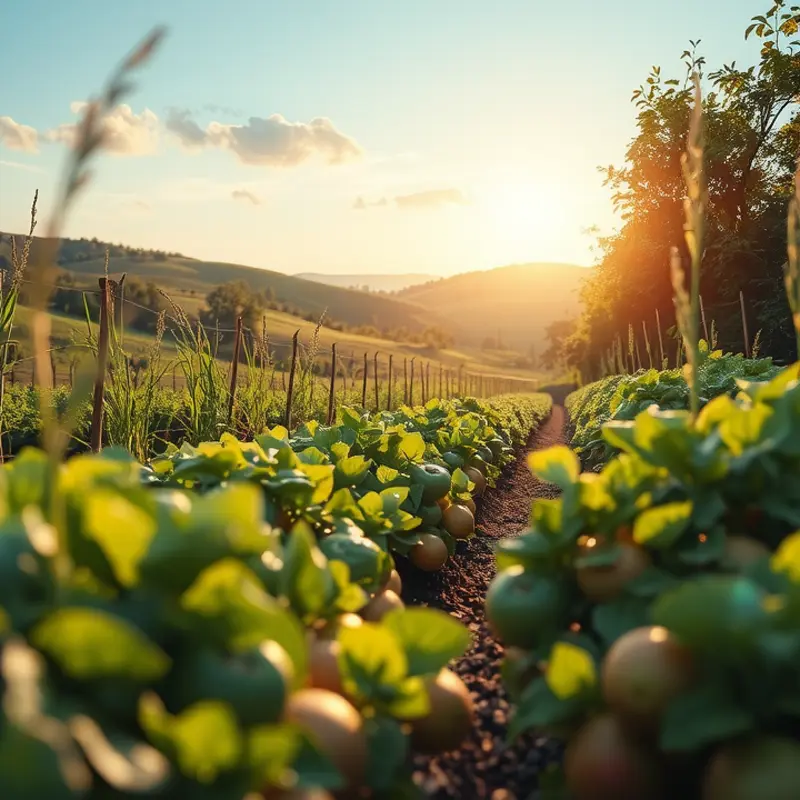Reducing kitchen waste is pivotal for environmentally-conscious individuals who want to make eco-friendly food choices. By minimizing waste, we contribute to a healthier planet and cultivate a sustainable lifestyle. From meal planning and composting to using every part of an ingredient, there are numerous practical steps we can adopt. The journey to becoming more waste-efficient in the kitchen not only supports the environment, but it also enriches our cooking experiences. Let’s explore effective strategies that can help every eco-warrior embrace a more responsible culinary approach.
Mastering Meal Planning and Smart Shopping

Meal planning and smart shopping begin with an understanding of your household’s dietary needs and preferences. Creating a comprehensive meal plan involves thinking ahead to prevent food wastage while optimizing the nutritional value of your meals.
Start by setting aside time each week to design a meal plan. This doesn’t have to be a daunting task. Utilize free online templates or basic spreadsheets to outline your family’s preferred meals. Aim to include a balance of proteins, carbohydrates, and fats, and don’t forget plenty of fruits and vegetables. For tips on incorporating plant-based meals, this guide provides simple adjustments you can make.
Once you have outlined your meal plan, the next step is creating an efficient shopping list. Divide your list into sections such as produce, pantry staples, dairy, etc. This will save you time in the store and help avoid impulse buys that often lead to excess waste. Consider downloading an app or maintaining a digital list on your phone for ease and convenience.
Pay attention to the seasonality of ingredients, as produce in season is typically fresher, tastier, and more affordable. Seasonal ingredients naturally complement one another in meals, making meal creation simpler and more rewarding. Check local farmers’ markets or CSAs for the best options—these not only offer seasonal produce but also support local agriculture.
While shopping, make sure to buy only what you need. Bulk buying may seem economical but can often lead to excess that spoils before it is used. If you live alone or in a small household, consider shopping more frequently in smaller amounts.
Incorporating leftovers skillfully into subsequent meals can greatly reduce waste. Leftover vegetables can be used in soups, stir-fries, or as pizza toppings. Turn last night’s roasted chicken into a savory sandwich or salad the next day. These strategies not only minimize waste but also cut down cooking time.
Explore batch cooking to make several meals with shared ingredients. This technique can optimize your shopping and dining experience, reducing instances of forgotten ingredients languishing in your pantry. For practical ways of batching ingredients for meals, this practical guide offers valuable tips.
Lastly, keep track of what’s in your pantry and refrigerator regularly. This allows you to avoid duplicate purchases and use up ingredients before they spoil. Remember, reducing kitchen waste is a continuous process of improvement, requiring little adjustments that can greatly impact over time, both environmentally and economically.
Creative Kitchen Solutions: Utilizing Leftovers Wisely

Leftovers often get a bad rap, seen as dull repeats of previous meals. However, with a touch of creativity, they can be transformed into exciting new dishes. One of the simplest methods to breathe new life into leftovers is through repurposing. Imagine that leftover roasted chicken: shred it, mix it with some spices, and you’ve got the base for savory tacos or a hearty chicken salad. Vegetables from yesterday’s dinner can be diced and tossed into a frittata for a quick, nutritious brunch.
Vegetable trimmings, such as carrot tops, onion skins, and garlic peels, are treasures waiting to be utilized. Collecting them over time and simmering them in water creates a flavorful vegetable stock that can be used for soups, stews, and risottos. This practice not only reduces waste but also enhances your meals by adding depth and umami.
Soup is another go-to solution. Turn leftover bits and pieces into a comforting pot of soup. Even a small portion of mashed potatoes can be thickened with some stock to make a hearty potato soup. Combine differently seasoned leftovers with a splash of cream or coconut milk to create smooth, delicious soups.
For an innovative touch, explore fermentation. Pickling leftover vegetables or making a quick kimchi can enhance flavors and extend their shelf life. Fermented foods can also introduce beneficial probiotics into your diet, bolstering digestive health.
Beyond cooking, organic waste can be transformed into black gold—compost. Composting kitchen scraps like coffee grounds, eggshells, and peels can enrich garden soil. Composting not only reduces food waste but also adds vital nutrients back to the earth, fostering a sustainable cycle.
Storing your leftovers effectively is key. Learning the safer storage of sauces and condiments can prevent spoilage and make it easy to incorporate them into future meals. By doing so, you ensure ingredients remain fresh and inviting.
Additionally, integrating leftovers into new meals encourages creativity in the kitchen. It challenges the cook to think outside the box. This kind of inventive cooking also supports mindful eating, as it encourages valuing every bite and appreciating the resources consumed.
Ultimately, making the most of each ingredient is a step toward a more sustainable kitchen. It’s a practice that nurtures both the palate and the planet. So, next time you stare at those leftovers, remember they are not just remnants of meals past; they are the starting point for your next culinary masterpiece.
Final words
Embarking on the journey to reduce kitchen waste necessitates conscious effort and a willingness to change established habits. By mastering meal planning, embracing smart shopping, and getting creative with leftovers, individuals can play a significant role in nurturing the environment. Remember, every small step counts; even minor adjustments to our cooking practices can lead to substantial outcomes in reducing food waste. Together, we can create a more sustainable future, ripe with savor and responsibility in our culinary adventures. Let’s keep the movement towards sustainability alive and thriving by promoting a culture of waste reduction in our kitchens.








